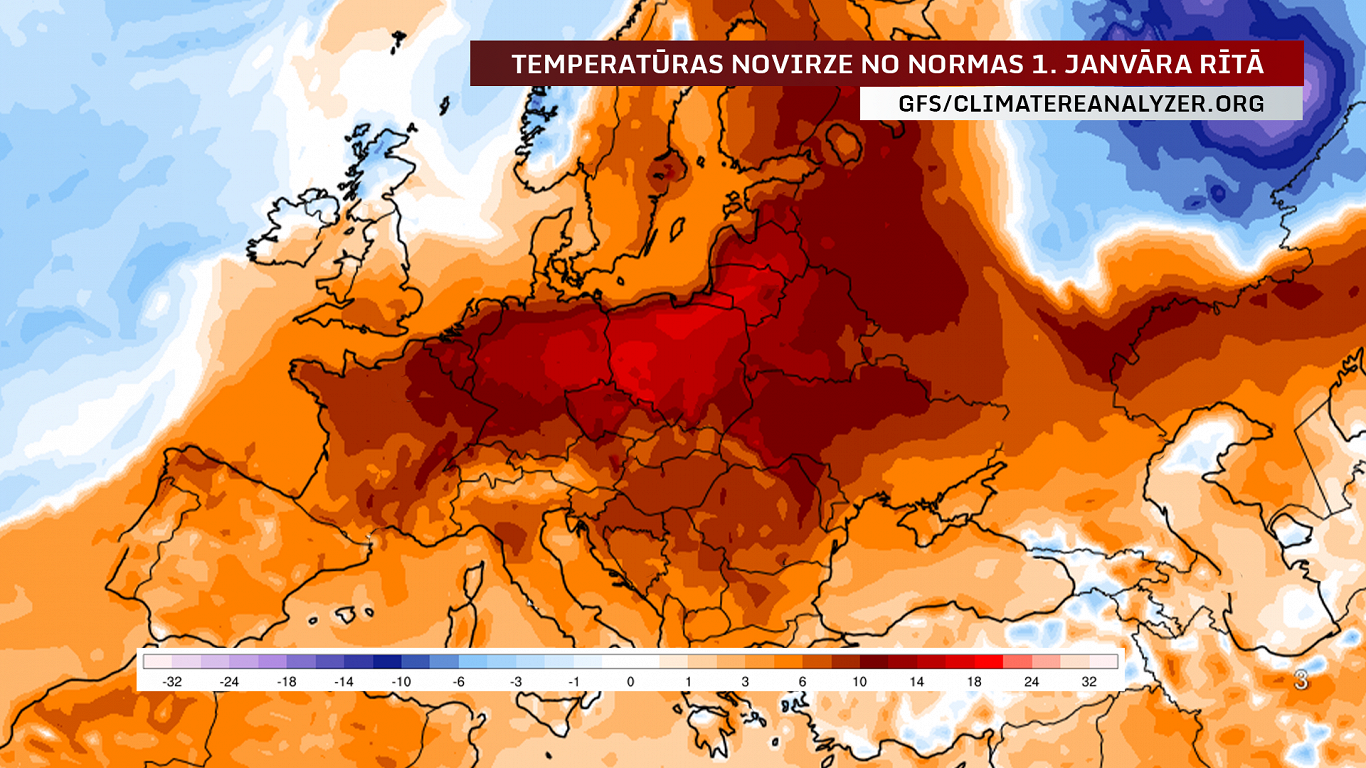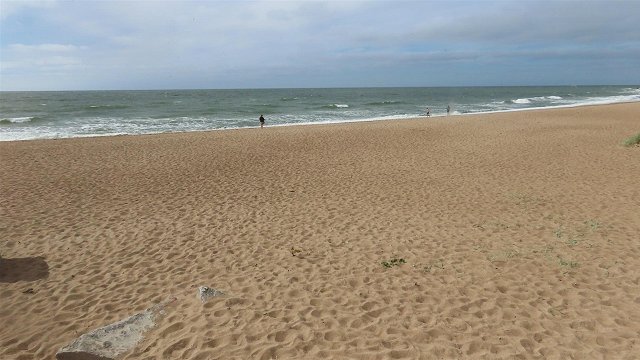At the end of the year, Europe will be covered by a wide, warm air mass which will lead to temperatures rising even 15-17 degrees above the climate norm.
Latvia will gradually get warmer starting Thursday, with thaw across the country. On New Year's Eve, December 31, the maximum air temperature will be +3 C to +8 C, but on New Year's Night, with a strong south-west, western wind, even warmer air will flow into Latvia and the temperature will be between +6 C to +11 C for a few hours. On New Year's Day, January 1, it will get cooler, but temperatures will also remain above zero.
Until now, the warmest New Year's Eve in Latvia was in 2016, when Kolka recorded +9.3 C, and January 1's record belongs to 1984, when Jelgava had +9.5 C. Current forecasts show that on January 1, Latvia can also beat the entire month's record, or it could become the warmest day of January ever. The previous record for January is set on January 10, 2007, when +10.7 C was recorded in Mērsrags and Jelgava.
Wind gusts on the coast will reach 20-22 metres per second, it will be windy and rainy across the country.
The warm weather and rain will melt the snow layer throughout Latvia. Water levels will rise and there is a risk of flood at certain stages of the river. Gravel roads will be difficult to drive on.
Very warm weather is forecast in many European countries. In Poland, the Czech Republic and Germany, temperatures will exceed 15 degrees on New Year's Eve.































